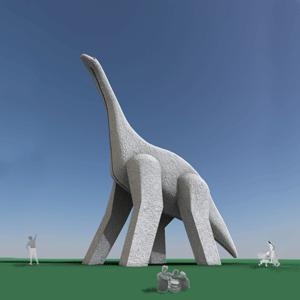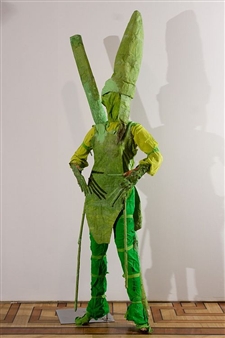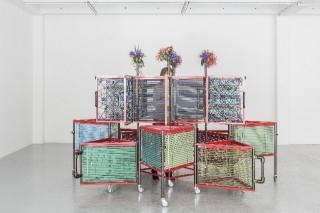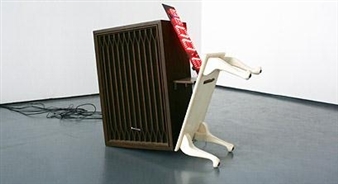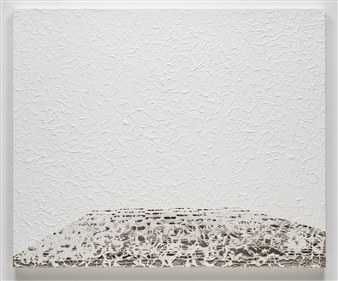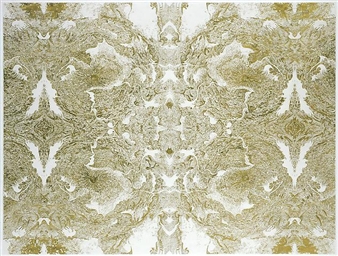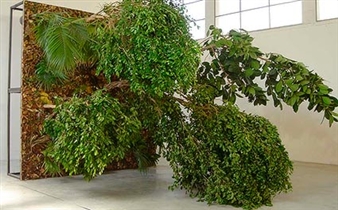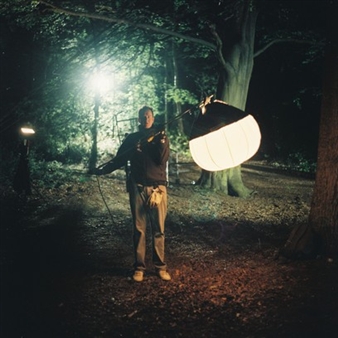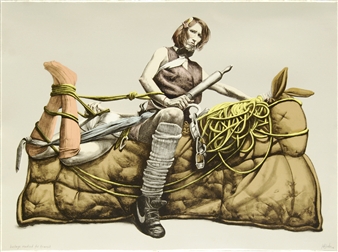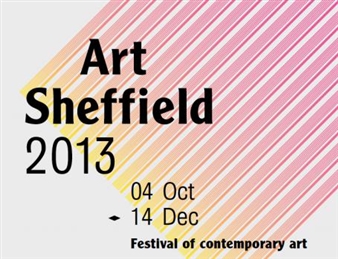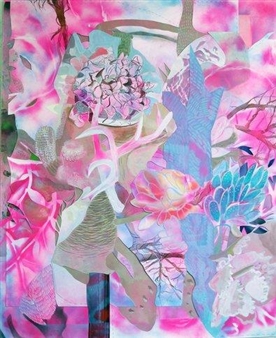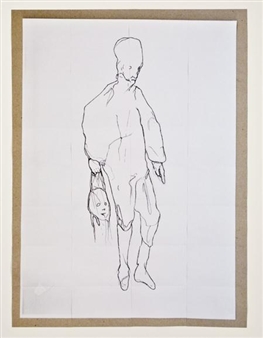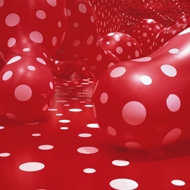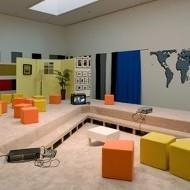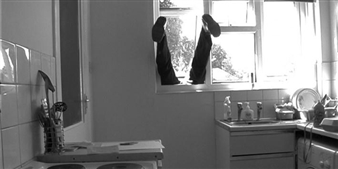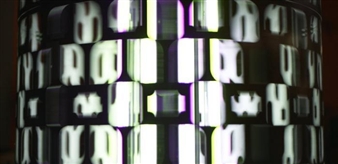Amanda Ross-Ho: Time Waits For No One
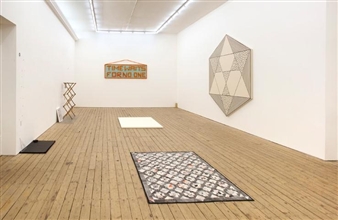
The approach E2, Ealing, London, 05/09/2011 - 06/19/2011
47 Approach Road
The Approach is delighted to present TIME WAITS FOR NO ONE, Los Angeles based artist AmandaRoss-Ho’s first solo show in London.
Ross-Ho’s practice is rooted in navigating understanding, utilizing a wide variety of forms as vehicles through which to embed a rigorous investigation of visual language. Her work regularly unites seemingly oppositional languages and spaces: autobiographical artifacts are mined for formal qualities; traces and residues from studio and gallery practice are meticulously re-created as deliberate gestures; boundaries between private work and public display are collapsed. She revisits images and forms in multiple iterations, creating scale shifts, moving among media, or using positive and negative structures.
For this show Ross-Ho has made a group of new works that function as both a continuation of existing languages within her practice as well as the introduction of a new vocabulary to a growing lexicon. All the works exist on a broad arc, some representing a later stage of evolution and some functioning as new points of departure. This internal architecture, which aims to map the connectivity and simultaneity of disparate forms, is a fundamental aspect of Ross-Ho’s practice. The exhibition uses sculpture,photographs, painting and engagements with the gallery’s architecture to define terms of a constantly evolving personal language. A variety of techniques – ranging from scaled photographs, to hand made textiles, to commercial fabrication – diagram relationships between economies of production and presentation.
Visual translations and shifts of scale and time appear in many works in the show. TIME WAITS FOR NO ONE is an over sized, fabricated translation of a small needlepoint, the tone of the original object transformed in both volume and gravity by scaling the piece to beyond human size. TRILLIUM is an acrylic painting on raw canvas, translated directly from a found image of a hexagon quilt pattern. The original was clearly drawn by hand and contains errors and inconsistencies, and the manner in which it is translated onto the canvas by Ross-Ho (hand sewn, not mechanized or stenciled) maintains this character.Created as a shaped canvas, this work takes on the presence of an object or sculpture more that a painting. This piece has a direct relation to DROP CLOTH QUILT, which sits on the gallery floor. A collection of Ross-Ho’s studio drop cloths, used to protect the studio floor and to test paints and marks,were sent to Ross-Ho’s aunt Gina Ross, a master quilt maker living in Central Ohio who was asked to treat them like a printed fabric and produce a pieced quilt. Drying Rack with Footlocker Bag includes a black and white bag that originally contained junk mail, receipts and office refuse. The discarded rubbish was laboriously recycled in the studio and handmade into fresh sheets of paper, which were then put back into the bag.
Several works have been customized specifically to the architecture of the gallery, reflecting echoes resulting from the personal history of the space. PAINTINGS TO DISGUISE A SET OF ARCHITECTURAL ELEMENTS is a set of canvases produced in specific response to the architecture of the space. By scaling each rectangle to each fixed element, a chance composition or taxonomy occurs. ASTACK OF BLACK PAPER was made in response to the holes left in wall from a work by Alice Channer in the previous show. Ross-Ho has used its traces as a departure point, each hole is punctuated by a single earring that Ross-Ho has been collecting over time and the piece was a spontaneous response to the Approach gallery and the space between one show and another. Elaborate translations of found images and objects are juxtaposed with gestures of immediacy, creating tension between temporal and fixed structures. Within the organizing principle of spatial and visual non-sequiturs is also a careful consideration of site, context and materiality.
Ross-Ho’s work is conversational, initiating dialogue between forms through negotiations of presentation, craft, memory and experience. Singular works demonstrate the careful sorting of a broader totality, acting as coordinates within a consistently expanding network.
